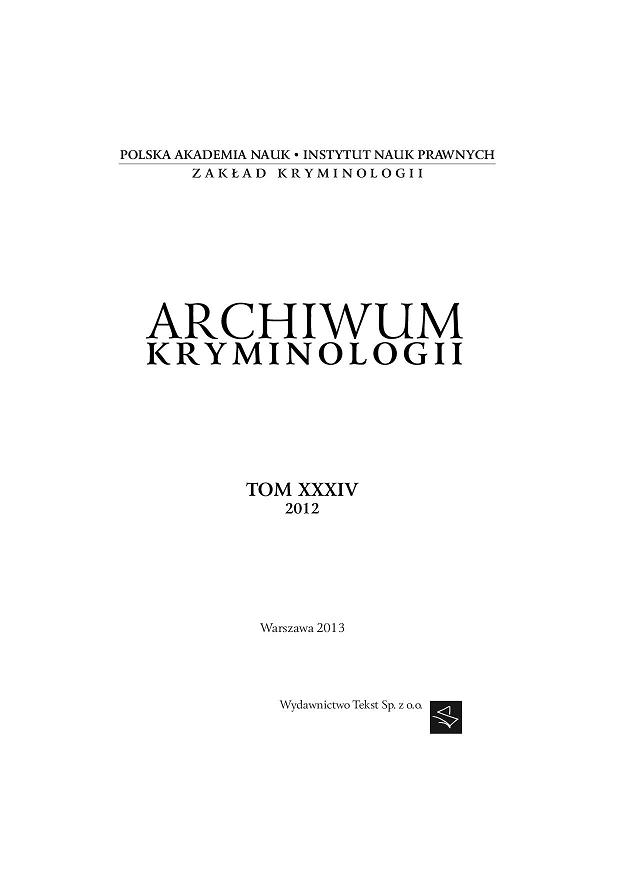Systemowa pozorność resocjalizacji penitencjarnej w świetle badań empirycznych. Propozycje zmian
Systemic ostensibility of the penitentiary resocialisation in the light of empirical studies. Proposals of changes
Author(s): Piotr StępniakSubject(s): Law, Constitution, Jurisprudence
Published by: Instytut Nauk Prawnych PAN
Keywords: INCARCERATION; POLISH PRISONS; RESOCIALISATION; PRISONERS;
Summary/Abstract: The article discusses studies on models of incarceration in Polish prisons. The object of the study was to determine if resocialisation model of this punishment dominates in practice, or other models, including official-formal of ostensible resocialisation, dominate and what are the factors determining this. Analysis of this problem was based on opinions by prison personnel and convicts from three prisons in the district of Greater Poland Voivodeship. Disscussion is opened by a critical reflection how much the resocialisation model suits modern penitentiary policy and to what degree it is reflected in current executory provisions of law. Discussion stars with a polemics with an opinion, quite common in Polish penitentiary literature, that incarceration should be based on this particular model as it is better than other ones. Resocialisation model does not take into account diversified needs of influence on prisoners. Some of them do not need improvement (e.g. unintentional, accidental perpetrators). Others, because of their already shaped negative personality traits will never be fit to come back to the society (e.g. perpetrators of most grave crimes of the highest degree of demorali-zation). In the end of theoretical discussion of various model of work with convicts during incarceration, the author draws one’s attention to the fact that provisions of executory criminal law can reflect resocialisation conceptions only to a limited degree. Practical model of penitentiary influence is hence not a uniform and clear pedagogical model but has an eclectic character. It is demonstrated that from such point of view, assessment of work of prisons based on the criterion if and how much they resocialise, is based on wrong premises. They are criticized in the article. In the second part of the article the author discusses the results of the empirical studies. It starts with the description of used research method and a general characteristic of the re-spondent group. The research was conducted in June and July 2010. It consisted in collecting opinions in questionnaires and in focus interviews with prisoners and prison staff. The groups were chosen in a random manner (132 prison officers and 350 prisoners) and they were representative for the population of the imprisoned in the regional authority of detention centres. Presentation of the most significant conclusions of the research starts with the fact that vast majority of convicts were imprisoned in a normal system had in practice a decisive influence on content and type of penitentiary influence. This system does not require corrective influence and thus penitentiary work concentrated on ensuring that the imprisoned are placed in conditions at least compliant with recommendations of European Prison Rules. In practice these conditions are included in prison rules. Most of all, they concern living space and prison regimen conditions without focus on education and correction work.
Journal: Archiwum Kryminologii
- Issue Year: 2012
- Issue No: XXXIV
- Page Range: 91-134
- Page Count: 44
- Language: Polish

